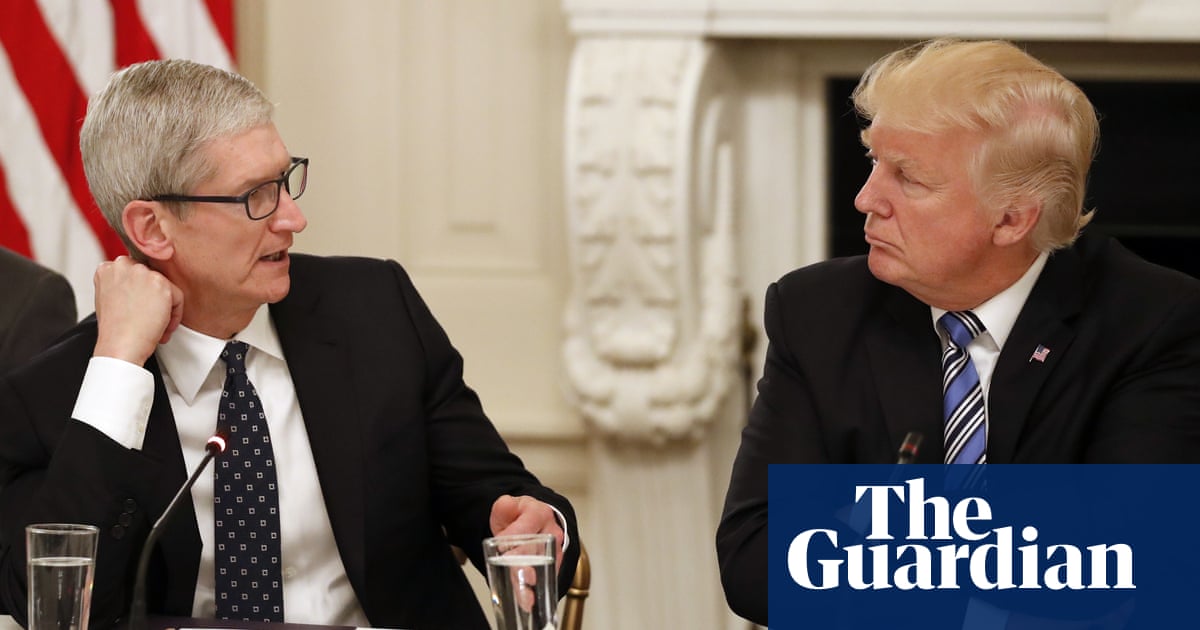Donald Trump has admonished Apple and its chief executive over the tech firm’s reported plans to source production of US-bound iPhones from India.
The US president said he had a “little problem” with Apple’s Tim Cook, after reports that the company isplanning to switch assembly of handsetsfor the US market from China to India.
“I had a little problem with Tim Cook yesterday,” said Trump, speaking in Qatar on Thursday. Referring to Apple’s recent promise tospend $500bn (£375bn) in the US, he added: “I said to him: ‘Tim, you’re my friend. You’re coming here with 500bn but now you’re building all over India. I don’t want you building in India.’”
The complex manufacturing process behind iPhones involves more than 1,000 components sourced from all over the world, which are largely put together in China. Apple is secretive about details of its production processes but analysts estimate about 90% of iPhones are assembled in the country.
However, production inIndiahas reportedly increased due to trade tensions between Washington and Beijing.
“I said to Tim … we’ve treated you really good, we’ve put up with all the plants that you’ve built inChinafor years, now you got to build [for] us,” Trump said. “We’re not interested in you building in India, India can take care of themselves ... we want you to build here.”
Trump then saidApplewas “going to be upping their production in the United States”, although he did not provide further details to back up the claim.
No iPhones are currently made in the US and experts have warned thatmoving assembly of Apple’s top-selling product to its home countrywould be impractical and costly. The US financial firm Wedbush Securities has estimated that the cost of an iPhone would treble if assembly were to be shifted to the US.
Apple was approached for comment.
The US president also said on Thursday that India had offered a trade deal that proposed “no tariffs” for American goods.
New Delhi is seeking to clinch a trade deal with the US within the 90-day pause announced by Trump on 9 April ontariff hikesfor trading partners.
Sign up toBusiness Today
Get set for the working day – we'll point you to all the business news and analysis you need every morning
after newsletter promotion
“It is very hard to sell in India, and they are offering us a deal where basically they are willing to literally charge us no tariffs,” Trump said.
India’s prime minister, Narendra Modi, has in recent years promoted his country as a smartphone manufacturing hub.
In March, Apple’s main India suppliers, Foxconn and Tata,shipped nearly $2bn of iPhones to the US, an all-time high, to bypass Trump’s impending tariffs.
Reuters contributed to this report.
